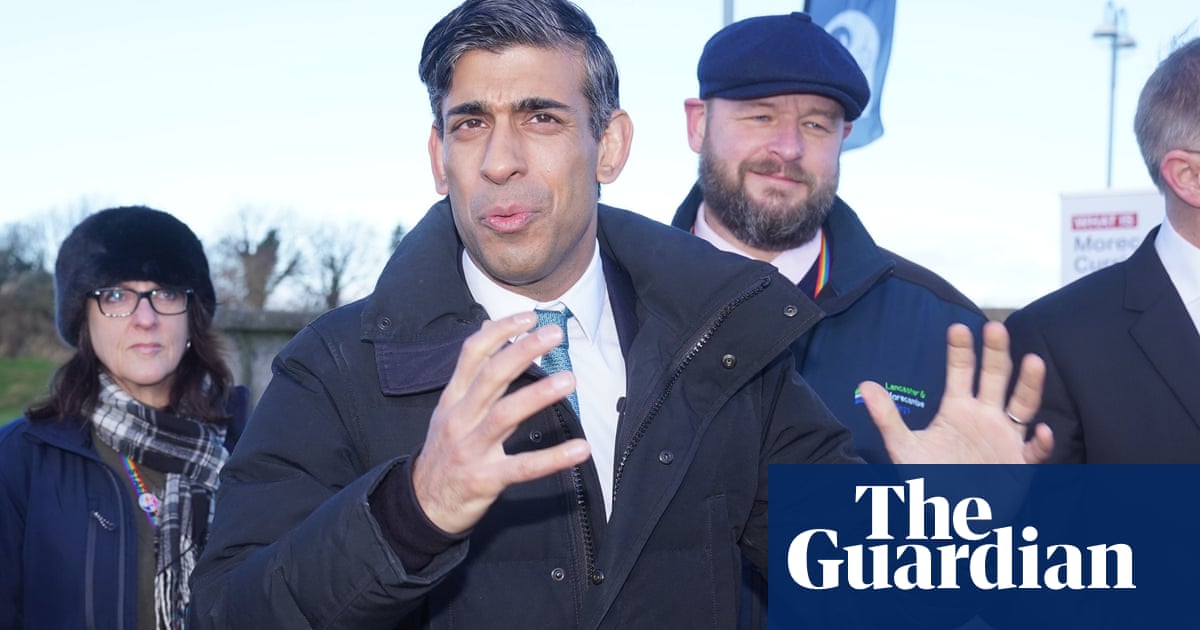
Economic commentators and investors all have their eyes on inflation, and the unexpected decision by the Bank of England to raise interest rates, for the first time in three years, to 0.25% – in spite of the disruption and uncertainty of Omicron. But behind the headlines and the focus on the Bank, the biggest macroeconomic questions facing the UK – which will determine whether families feel the pinch this Christmas and beyond – are all up to the chancellor.
Inflation has reached its highest level in a decade, at 5.1%. Yet this isn’t inflation of the 1970s kind, still raised as an economic bogeyman to stoke fear of “wage-price spirals”. The governor of the Bank of England has said there is little risk of this. Inflation is, in fact, outstripping pay rises – so average pay packets are shrinking in real terms.
Instead, the main drivers of inflation currently are imported from overseas, such as fuel and energy, vehicles – as car manufacturers wait for the semiconductor shortage to ease – and other imported goods such as garments and furniture. The reality is that the Bank’s decision over interest rates last week is unlikely to bring down inflation levels right away. These prices will remain high, as they are determined by global factors.
What matters for decision-making over interest rates is the expected health and shape of the economy in the medium term – say a year’s time – when the effects of policy will be felt. And here, the problem is that the UK economy is likely to be firing on one cylinder, with its capacity substantially below what we would have expected for 2022 prior to the pandemic.
That includes the many employers struggling to fill vacancies. Since the start of the pandemic, the workforce has effectively shrunk: when compared to what we’d expect if pre-pandemic trends had continued, there are a million “missing” workers. More than half of the gap is among older workers, with increases driven by retirement and sickness. With the UK economy able to produce less than it could before the pandemic, the Bank’s concern is that low interest rates will lead to inflationary pressures.
The Bank of England is not able to address most of these challenges through monetary policy. Even after the increase, interest rates are ultra-low. It is the government, and specifically the Treasury, that can and must do more to shape the future economy and its capacity. As we leave the acute crisis phase of the pandemic, the Bank will want to slowly raise rates – stabilising the economy by preventing financial bubbles. This needs to be accompanied by fiscal policy – with government measures to boost incomes and spending power among those who are struggling, and to invest in future capacity in the economy.
That’s why, after his return from a visit to sunny California, it’s imperative the chancellor returns his focus to helping families and businesses. That should include support for families to get through a difficult winter, with many likely to facing an expensive Christmas. He should restore the £20 boost to universal credit, ensure all benefit payments are raised to account for the rising cost of living and boost cold weather payments so that no one goes cold this winter because they couldn’t pay for heating.
Businesses, particularly those in hospitality, have raised the alarm as customers have stayed away to avoid catching the ultra-transmissible Omicron variant. To stop companies collapsing, restore business confidence in their future and ultimately to protect jobs, Rishi Sunak should reinstate a version of the furlough scheme, as well as payments to the self-employed.
Ensuring the economy’s long-term health will take even more than this. As well as investing to boost productivity, it will mean addressing the problem of the “missing million” workers, with targeted support to help people into good jobs, and supporting businesses to provide a working environment that older people feel safe in, without compromising their health. With health and social care seeing some of the largest numbers of vacancies, fair pay rises at least in line with inflation are needed.
And the government must do everything it can to protect public health, inside and outside the Treasury. That means fixing Britain’s woefully inadequate sick pay, which leaves too many facing impossible choices over protecting public health and having enough money for bills. It also means stepping up our contribution to vaccinating the global population, not just the UK. Protecting the public from Omicron will not only allow normal business to resume sooner, but will also avoid a damaging increase in the number of workers suffering from long Covid.
Inflation has always provided a context for political contest and manoeuvring, and 2021 is no different, with a chancellor reluctant to further tarnish a reputation for prudence. But failure to step in to boost our economic capacity will only deepen the chancellor’s inflation headache – and could permanently stunt livelihoods. The UK faces a choice between a smaller, low-productivity economy and investing in a stronger recovery, with good jobs and support for people to take them. An astute politician would take the latter path.
Carys Roberts is executive director of the Institute for Public Policy Research












